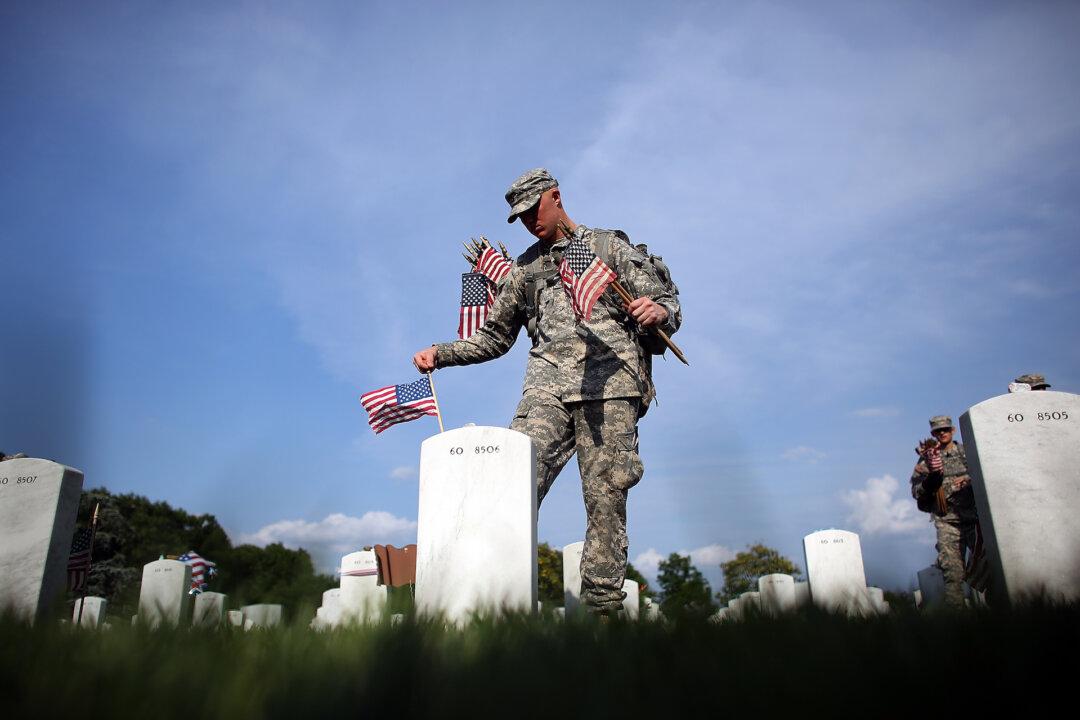Memorial Day exists for one purpose alone: to pay homage to those Americans who died in war serving their country.
Sometimes we may overlook the true thrust of this day. The three-day weekend, the backyard barbecues, the jaunts to the beach or the countryside: We indulge in these pleasures, appreciative of a holiday away from the office, and often forget, I suspect, to pause and recollect those who have laid down their lives for our country over the past 250 years.






